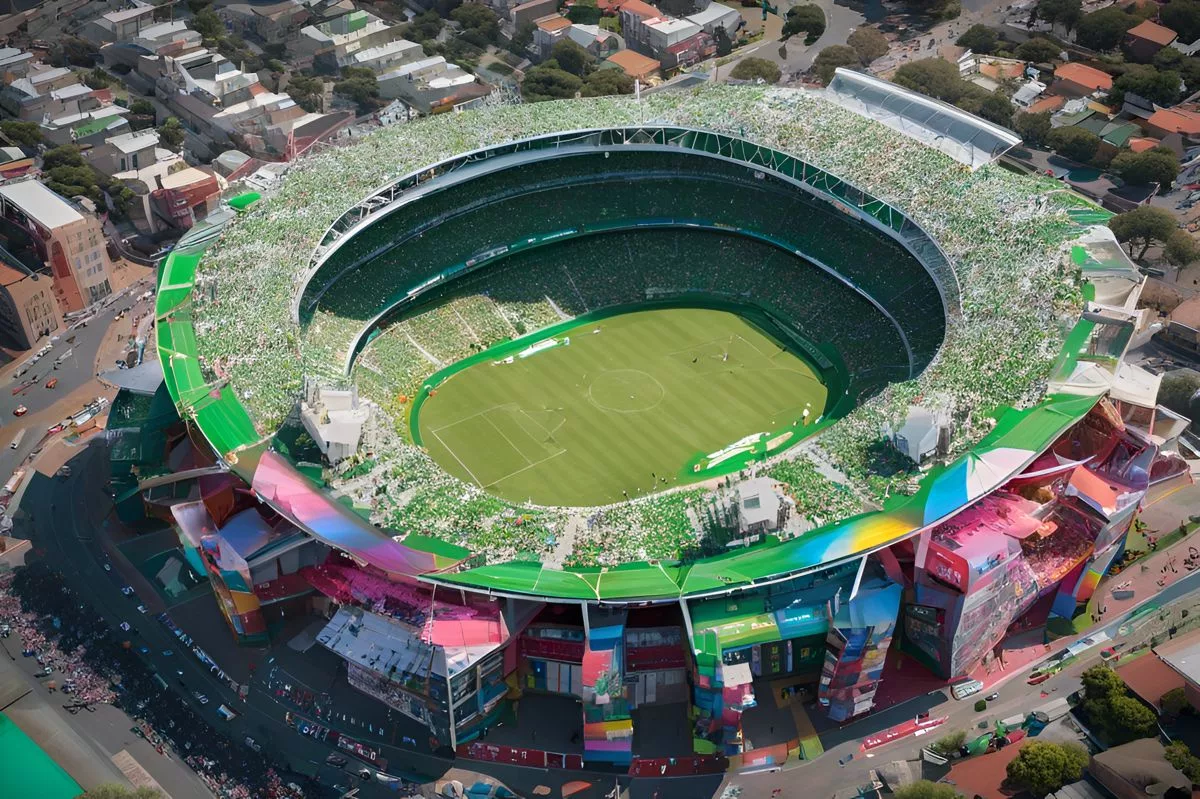Iconic landmarks in urban environments play a significant role in shaping a city’s identity and contributing to economic development and community building. Locations such as the Grand Parade, City Hall, Green Point Athletic Stadium and Park, and Athlone Stadium host a variety of events and activities, enhancing the city’s vitality and daily existence. The City of Cape Town is dedicated to preserving the legacy of these venues through continual improvements, reflecting their commitment to safeguarding historical significance and boosting economic potential. These iconic structures are not just physical entities, but vibrant, living entities that embody the spirit of Cape Town.
The Influence and Significance of Iconic Landmarks in Boosting a City’s Vibrancy. Urban environments frequently earn their reputation from their standout structures and exceptional locations. These iconic places not only shape the city’s profile, but also significantly contribute to economic development and community building.
Section 1: The Impact of Iconic Landmarks on a City’s Identity
Urban environments frequently earn their reputation from their standout structures and exceptional locations. These iconic places not only shape the city’s profile, but also significantly contribute to economic development and community building, as evidenced in Cape Town’s case. As integral elements of the city’s strategic assets portfolio, these locations have effectively accommodated numerous events and activities within the financial year that spanned from July 2023 to June 2024, thereby enhancing the city’s vitality and daily existence.
A visit to the Grand Parade during the holiday season, for example, allows one to experience the palpable excitement in the surroundings. The lighting of the Festive Lights attracts thousands of people to the historic location, highlighting its deep-rooted importance in the city’s storyline. Apart from the customary Wednesday and Saturday markets, the Grand Parade also hosts unique events such as DRIFTCity, the Slave Route Challenge, and the Totalsports Women’s Race, each enriching the site’s lively ambiance.
Section 2: Cultural Significance of Iconic Landmarks
Just a short distance away, Cape Town’s City Hall stands as a glowing symbol of the city’s cultural and political legacy. Hosting events such as Cape Philharmonic Orchestra concerts, Parliament sessions, Loeries Award ceremonies, and performances by renowned musicians like Abdullah Ibrahim, the venue intertwines its historical significance with its contemporary relevance. It’s impossible not to feel a surge of emotion within the grand hall, a tribute to the lasting importance of such iconic structures.
Meanwhile, the recreational sector is also thriving. The Green Point Athletic Stadium and Park, a hub of constant activity, proudly host popular events such as the Cape Town Cycle Tour and the Wings for Life World Run. The Urban Park, which welcomes over a million visitors every year, offers a quiet natural retreat amidst the city’s hustle and bustle. In the same vein, the Athlone Stadium sets the stage for an array of events, from PSL soccer matches and the Coke Cup Final to Minstrel Competitions and the Cape Town Ablaze Gospel Event.
Section 3: Preserving the Legacy of Iconic Landmarks
However, the upkeep of these venues is a colossal undertaking, a responsibility that the City of Cape Town does not take lightly. To keep these venues in top shape, numerous projects have been launched in accordance with the Safety at Sports and Recreational Events Act (SASREA) and other regulations. Principal enhancements include improved signage and commemorative structures at the Grand Parade, CCTV, signage, and lighting updates at City Hall, track resurfacing at the Green Point Stadium to attain Class 2 World Athletic Certification, and bolstered security measures at the Athlone Stadium.
In addition, the city’s pledge extends beyond routine maintenance. For instance, the Good Hope Centre, a bustling hub for Cape Town’s film industry, is currently under review for future use through the Phase 1 Heritage Impact Assessment.
Section 4: Continual Improvements and Future Prospects
These continuous upgrades, carried out in close partnership with the Strategic Assets Department, reflect the city’s commitment to not only boost these venues’ economic potential, but also safeguard their historical significance. The goal is straightforward – to maintain these venues as dynamic, inviting spaces for all, and to promote their utilization for hosting a variety of events and activities.
This dual role of serving as economic stimulants and guardians of heritage underscores these venues’ quintessence. They are not merely physical structures, but vibrant, living entities that mirror the spirit of Cape Town. Their stories, both told and untold, are interwoven with the city’s narrative, molding and being molded by its socio-economic and cultural dynamism. Cape Town is more than just a city; it is a vivid, constantly evolving mosaic of shared experiences and collective memories.
1. How do iconic landmarks shape a city’s identity?
Iconic landmarks play a significant role in shaping a city’s identity by contributing to economic development and community building. They enhance the city’s vitality and daily existence by hosting various events and activities.
2. What are some examples of iconic landmarks in Cape Town?
Examples of iconic landmarks in Cape Town include the Grand Parade, City Hall, Green Point Athletic Stadium and Park, and Athlone Stadium.
3. What is the cultural significance of iconic landmarks in Cape Town?
Iconic landmarks in Cape Town have cultural and political significance. For example, City Hall hosts events such as Cape Philharmonic Orchestra concerts and Parliament sessions, while the Grand Parade hosts events like the Slave Route Challenge and the Totalsports Women’s Race.
4. How does the City of Cape Town preserve the legacy of iconic landmarks?
The City of Cape Town preserves the legacy of iconic landmarks through various projects launched in accordance with regulations such as the Safety at Sports and Recreational Events Act (SASREA). Improvements include better signage, commemorative structures, CCTV, lighting updates, resurfacing, and security measures.
5. What is the goal of continual improvements to iconic landmarks in Cape Town?
The goal of continual improvements to iconic landmarks in Cape Town is to maintain them as dynamic, inviting spaces for all and to promote their utilization for hosting various events and activities while also safeguarding their historical significance.
6. What is the significance of iconic landmarks in Cape Town beyond their physical structures?
Iconic landmarks in Cape Town are not just physical structures but vibrant, living entities that embody the spirit of the city. They are interwoven with the city’s narrative, molding and being molded by its socio-economic and cultural dynamism.












